Communities of Practice
Discover maternal and newborn health focused communities of practice (CoPs) below to share, debate, and discuss knowledge, evidence, and experiences.
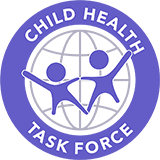 Child Health Taskforce Subgroup on Digital Health
Child Health Taskforce Subgroup on Digital Health
The Digital Health and Innovations Sub-Group works to share the latest digital health and innovations best practices on the effective uptake of technologies as they related to better outcomes for children in line with the Global Strategy for Women’s, Children’s, and Adolescents’ Health (2016-2030) – through primary health care, inclusive of community health systems. The Digital Health and Innovations subgroup directly engages a broad set of experts across the CHTF global network.
Membership: Open to current members of the Child Task Force CoP
To Join: Access the COP and Subgroup Resources via the Child Health Task Force
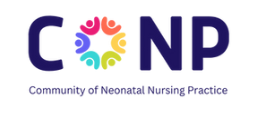
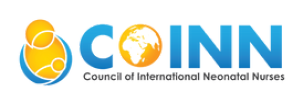 COINN Community of Neonatal Nursing Practice
COINN Community of Neonatal Nursing Practice
The Council of International Neonatal Nurses COINN COP aims to strengthen and empower the neonatal nursing workforce via a sustainable, global neonatal nursing community of practice that is committed to advancing education, mentorship, research, advocacy and leadership. Neonatal health care workers can join the COP to benefit from this shared community, as well as the many practical and useable resources on the website, such as online neonatal courses for nurses and midwives, educational plans and checklists, updated and relevant publications around small and sick newborn care, etc.
Membership: Open
To Join: Visit CONP website
 CORE Group Working and Interest Groups
CORE Group Working and Interest Groups
CORE Group has five open working groups focused on learning and sharing around technical and cross-cutting, topics: Systems for Health, Monitoring & Evaluation, Nutrition, Reproductive, Maternal, Newborn, Child & Adolescent Health (RMNCAH), and Social & Behavior Change. CORE Group also has 5 open Interest Groups including the Humanitarian-Development Task Force, Disability Inclusive Health Technical Advisory Group, Non-communicable Diseases, One Health, and WASH and Health.
Both Working Groups and Interest Groups are teams of individuals from multiple organizations interested in contributing to further development and understanding of a technical or cross-cutting topic. All groups have active listservs, and anyone is welcome to join any group’s listserv.
Membership: Open
To Join: Visit the CORE Group Site
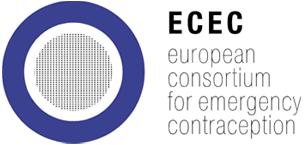 European Consortium for Emergency Contraception
European Consortium for Emergency Contraception
The ECEC community aims to expand knowledge about and access to Emergency Contraception (EC) within the European region and promotes the standardization of EC service delivery to ensure equitable access across the region
Membership: Open
To Join: Email to Sign-Up
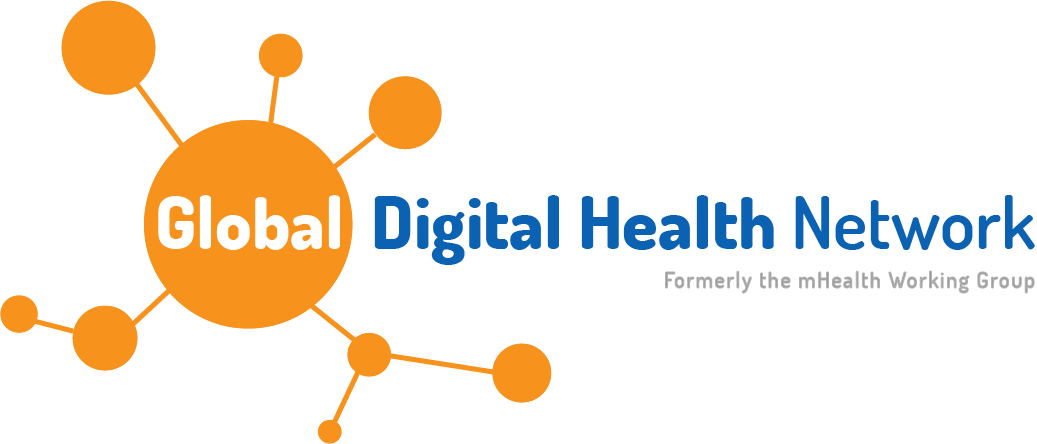 Global Digital Health Network
Global Digital Health Network
The Global Digital Health Network envisions a world where technical innovation supports improved health and contributes to better quality, accessibility and sustainability of health services and health outcomes, particularly for underserved populations in low resource environments. Formerly known as the mHealth Working Group, the Network was established in 2009 by global health organizations for global health organizations, and has now grown to be a 4,000+ person-strong networking forum with members from 134 countries to share information, engage with the broader community, and provide leadership in digital health for global public health. Our events and communications are a venue to share practical and flexible guidance with each other and the community. We also seek to engage with and learn from digital implementers in non-health sectors, so that we may strengthen our respective digital technologies.
Membership: Open
To Join: Visit the listserv sign-up page on the website
 Group Care Community of Practice
Group Care Community of Practice
Welcome to the Group Care Community of Practice (GCCoP). This CoP connects people who want to implement, sustain, and scale-up Group Care in their health care settings. With your participation, this interactive platform that will be a helpful tool for practice and research!
Membership: Open
To Join: Visit the GCCoP page
Global Health Knowledge Collaborative
GHKC contains more than 500 people from 60 countries and is open to individuals working on knowledge management activities in the context of global health and development.
Membership: Open
To Join: Visit the IBP Xchange
 Healthy Newborn Network
Healthy Newborn Network
The Healthy Newborn Network (HNN) is an online community dedicated to addressing critical knowledge gaps in newborn health. HNN provides a platform for organizations and professionals to share research, program experience, and thought leadership. The network also connects advocates around the world and provides a platform for discussions and interactions on a vast range of newborn and maternal health issues.
Membership: Open
To Join: Visit the HNN Site
 IBP Network Community Engagement Platform
IBP Network Community Engagement Platform
Hosted at the World Health Organization HQ, IBP Network is a global partnership convening partners to share effective and evidence-based practices, guidelines and tools in family planning and sexual and reproductive health, by leveraging our convening power, diverse membership and neutral platform for knowledge sharing and collaboration.
Through the IBP Community Engagement Platform, IBP provides a one-stop-shop for the latest news, events and discussions in the space of FP/SRH, and allows you to connect with thousands of other members around the globe. The platform also provides a space for a variety of Communities of Practice (CoPs) on technical topics related to FP/SRH, including maternal and newborn health.
Membership: Open
To Join: To join the IBP Platform for free, fill in your request via www.ibpnetwork.org. Once a member of the platform, you may request to join any Community of Practice of your interest. To express interest in creating a Community of Practice on the IBP Network platform email: ibpnetwork@who.int
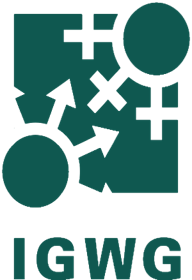 Interagency Gender Working Group
Interagency Gender Working Group
The Interagency Gender Working Group (IGWG) promotes gender equity within global health programs with the goal of improving FP/RH, HIV/AIDS, maternal, child health, and nutrition outcomes, and fostering sustainable development.
Membership: Open
to Join: Visit the IGWG Site.
 Inter-Agency Working Group on Reproductive Health in Crises
Inter-Agency Working Group on Reproductive Health in Crises
The Inter-Agency Working Group (IAWG) on Reproductive Health in Crises is a coalition of diverse members including organizations and individuals working collaboratively to strengthen and expand access to quality sexual and reproductive health services for people affected by crises.
Membership: Open
To Join: Visit the IAWG Site
Male Engagement Task Force of the Interagency Gender Working Group
IGWG’s Male Engagement Task Force (METF) is an information, advocacy, and knowledge exchange network on what it means to engage men/boys in health promotion and gender equality. The METF aims to explore why we should engage men, what are the benefits, how to do it, what works and doesn’t work, and what modalities of health services can better reach and include men. The health areas addressed include family planning (access, delivery, uptake, utilization, FP methods, etc.), sexual reproductive health and rights, maternal newborn child and adolescent health, breastfeeding, gender-based violence (GBV), HIV (prevention, testing, treatment, care, adherence, etc.), malaria, TB, and other issues. The TF considers relevant efforts across social and behavior change (including shifting social and gender norms), services, research, and policy across these health areas.
Membership: Open
To Join: Request to join via the METF Google Group.
 MAMI Global Network
MAMI Global Network
The MAMI Global Network is a group of programmers, researchers and policymakers from across the globe, who are working to ensure that every small and nutritionally at-risk infant under six months and their mothers (MAMI) are supported to survive and thrive. MAMI supports infant and maternal nutrition, health and maternal mental health to reduce the risk of adverse outcomes among these infants under six months of age.
The MAMI Global Network is coordinated by ENN and co-led by ENN and the London School of Hygiene and Tropical Medicine (LSHTM). The MAMI Global Network does not directly implement programs but supports three broad areas of work: Evidence, Policy and Practice.
Membership: Open
To Join: Request to join via the MAMI Global Network Membership Form
Maternal, Infant, and Young Child Nutrition – Family Planning – Immunization Integration COP
The MIYCN-FP-Immunization Community of Practice seeks to increase quality and convenience of comprehensive care for women and their infants and young children through effective connections across high impact, high priority services: nutrition, family planning, and immunization services. This combines two previously separate working groups on MIYCN-FP and FP-Immunization integration into one consolidated CoP.
Membership: Open
To Join: From the IBP Site, select “Request Invitation” button in the top right corner. You should receive an approval email from “IBP Network.” Check your spam folder if you don’t receive an email and if you still can’t find it, contact ibpnetwork@who.int. Once you receive the approval email, follow the instructions to set up your profile. Join the MIYCN-FP-Immunization Community of Practice.

Perinatal Mental Health CoP
The Perinatal Mental Health Community of Practice (PMH CoP) is a global collaborative platform for anyone looking to advance the field of PMH. The community’s focus is to provide opportunities for those living and working in low- and middle-income countries (LMICs) to share practical and effective PMH tools, best practices, and strategies, to problem solve shared challenges as a community, and to engage in reciprocal learning.
As of 2025, the CoP is now managed by AlignMNH
Membership: Open
To Join: Please fill out this form

Postpartum Hemorrhage CoP
Under the leadership of local experts, the Postpartum Hemorrhage Community of Practice (PPH CoP) works with country partners to align the maternal, newborn, and child health community on the latest PPH strategies, mobilize support to spark action, and accelerate progress toward targets and key health system priorities. The PPH CoP supports Ministries of Health to drive system changes for sustainable implementation of best practices for postpartum hemorrhage (PPH).
As of 2025, the PPH CoP is now managed by AlignMNH.
Membership: Open
To Join: Please fill out this form
 Rehabilitation and Reintegration Technical Working Group
Rehabilitation and Reintegration Technical Working Group
The Rehabilitation and Reintegration Technical Working Group was launched at the close of the 8th International Conference of the International Society of Obstetric Fistula Surgeons (ISOFS) in November 2022. Working to end fistula means ensuring interventions that address the full complement of women’s needs: from prevention, to repair, to physical rehabilitation and community reintegration. This is the holistic fistula care programming approach.
Membership: Open
To Join: Please reach out to Iyeme Efem, Senior Global Fistula Manager (Iefem@engenderhealth.org) to indicate interest in joining.
 Safe and Appropriate Cesarean Delivery in Low-Resource Settings CoP
Safe and Appropriate Cesarean Delivery in Low-Resource Settings CoP
MOMENTUM Safe Surgery in Family Planning and Obstetrics has launched a Community of Practice (CoP) that catalyzes strategic change and enables actors at the global, regional, and country levels to identify solutions, share implementation experiences, coordinate, and collaborate on implementation initiatives, and accelerate action to ensure the safety, quality, and appropriate use of CD in low-resource settings. The CoP seeks a broad membership reflecting a diversity of skills, experiences, and viewpoints, particularly clinicians, program implementers, researchers, and policymakers based and working in low-resource settings.
Membership: Open
To join the Safe and Appropriate CD CoP, please click on this link and complete the form: Safe and Appropriate Cesarean Delivery in Low-Resource Settings Community of Practice
 Service Delivery Redesign (SDR) CoP
Service Delivery Redesign (SDR) CoP
This SDR Community of Practice has been created 1)To create a channel for ongoing communication among individuals, groups and countries that are implementing or considering implementing SDR 2)To be an avenue for sharing emerging results and lessons from the implementation of SDR 3)To be a platform for learning about the concept of SDR 4)To be a repository for all the tools, resources and learning products generated from SDR across the globe 5)To create opportunities for innovative thinking around the concept and implementation of SDR
Membership: Open
To Join: Create an account on the Global Financing Facility Knowledge and Learning Platform. Select the ‘Collaboration’ tab and then click ‘Join a Community of Practice’. Scroll to ‘Service Delivery Redesign Community of Practice‘ and click the ‘Join Community’ button.
 Social and Behavior Change for Service Delivery
Social and Behavior Change for Service Delivery
The Social and Behavior Change (SBC) for Service Delivery CoP unites representatives from donor and implementing partner organizations and other technical experts who work to improve SBC for service delivery at the individual, household, community/normative, and structural/policy levels. The group focuses on family planning and maternal and child health, prioritizing work on provider behavior change, measurement and indicators, and health service referrals.
Membership: Open
To Join: Visit the Breakthrough ACTION Site
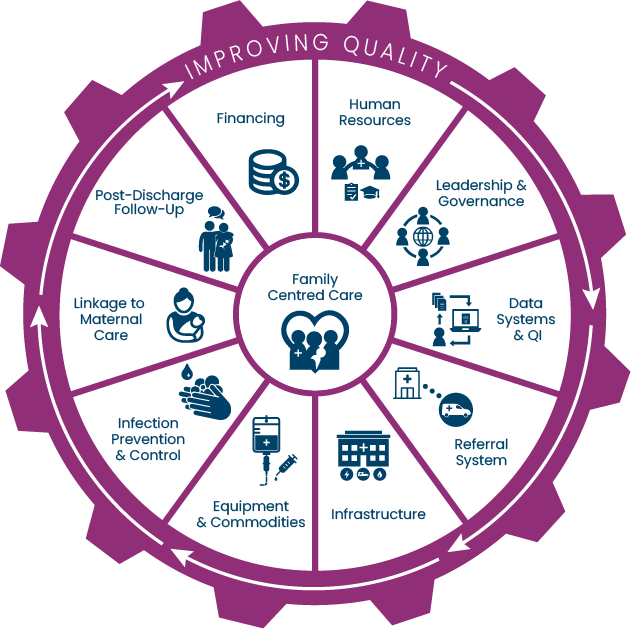 The Newborn Toolkit
The Newborn Toolkit
The Implementation Toolkit (Newborn Toolkit) is designed for implementers of high-quality small and sick newborn care from around the world. It provides everyone involved in implementing small and sick newborn care with the tools, reading materials and learning resources they need. With a user base exceeding 28,000 across 173 countries in 2023 and with over 800 resources in 11 different languages, the Newborn Toolkit serves as a one-stop site for implementers to act, use, share and learn.
Membership: Open
To Join: Sign up to The Implementation Toolkit for small & sick newborn care
Visit website: The Implementation Toolkit for small & sick newborn care
 Transport and Referral CoP
Transport and Referral CoP
We’re a worldwide community who share one fundamental goal: To advance care-seeking and referral practices for mothers, newborns, and children in developing countries. By joining us, you will become part of a vibrant and passionate online community. We aim to bring you monthly webinars, opportunities for exchange and technical assistance, and a platform for members to discuss latest evidence and practices with leading experts.
Membership: Open
To Join: Visit the LSHTM Site

